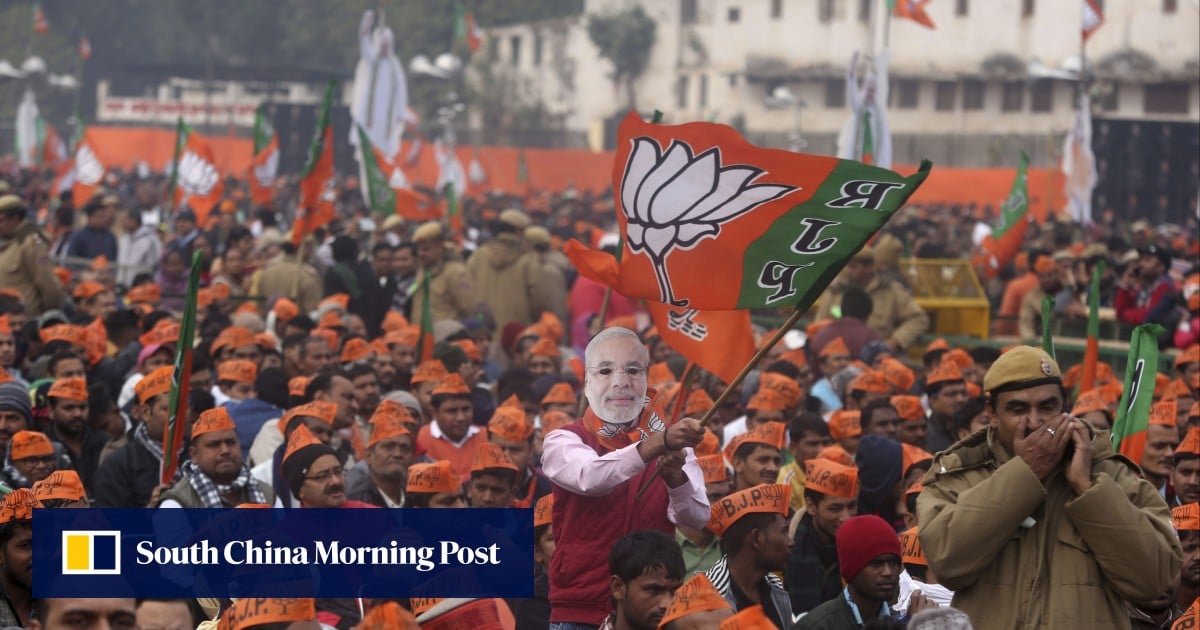
Impact of Indian-Origin Extremism on UK Social Cohesion Explored
Understanding the Rise of Indian-Origin Extremism
The United Kingdom, known for its multicultural fabric, faces an evolving challenge with the rise of extremist ideologies stemming from its Indian-origin communities. This issue is not restricted to any one group but involves various factions that promote divisive narratives. These ideologies, deeply rooted in political, religious, or cultural identities, are becoming increasingly prominent.
One of the significant concerns revolves around the polarizing discourses that these ideologies promote. Such narratives can often be linked to tensions in the Indian subcontinent, which are now being imported into the UK's diverse society. This creates an environment where communities that have long coexisted begin to develop distrust and segregation.
The Role of Social Media in Amplifying Extremism
Social media platforms play a crucial role in the dissemination and amplification of extremist ideologies. With a few clicks, radical messages can reach a vast audience, transcending borders and cultures. The anonymity and global reach of these platforms provide extremist groups a perfect breeding ground to propagate their ideas.
In the UK, online spaces are often used to spread hyper-nationalistic or religiously charged content that resonates with certain sections of Indian diasporas. The digital echo chambers further reinforce these ideas, making them more appealing to those seeking a sense of identity or belonging in a foreign land.
Historical Context and its Repercussions
Understanding the rise of Indian-origin extremism in the UK requires delving into the historical contexts that fuel these ideologies. Many of these tensions trace back to colonial times and the subsequent political landscapes that have shaped modern India and its neighboring regions.
The echoes of these conflicts continue to resonate among British Indians, many of whom maintain close ties to their ancestral lands. The historical grievances, when manipulated by extremist factions, risk creating divides within the multicultural tapestry of the UK.
The Impact on Social Cohesion
The impact of Indian-origin extremism on UK social cohesion is profound and multifaceted. At the grassroots level, there is a risk of increasing intra-community tensions. As these extremist groups grow bolder, mainstream communities might also begin to adopt stereotyping and isolation tactics against perceived "others."
Schools, workplaces, and neighborhoods, once hailed for their diversity, could witness rising suspicion and discrimination. Such developments have the potential to erode the trust and harmony that underpin British society, leading to a more fragmented social structure.
Efforts to Counter Extremism
Addressing this growing challenge requires a multifaceted approach. The UK government, alongside grassroots organizations and community leaders, is working towards identifying and countering extremist elements. Policies are being developed to increase surveillance on digital platforms and promote digital literacy, enabling individuals to identify and resist extremist propaganda.
Community programs aimed at fostering dialogue and understanding are pivotal. These initiatives encourage intercultural exchanges, dispelling myths and reducing the allure of extremist narratives. Educating the younger generation about the dangers of extremism and the value of diversity is crucial for long-term social cohesion.
The Role of Education and Dialogue
Education and dialogue remain powerful tools in combating extremism. Educational institutions can serve as arenas for open discussion, allowing students from diverse backgrounds to engage in conversations that foster mutual respect and comprehension.
By promoting inclusive curriculums that acknowledge and celebrate diversity, we can cultivate a generation that values cooperation over division. Encouraging discussions about historical and contemporary issues helps young people critically analyze extremist narratives, reducing their susceptibility to radicalization.
Building Resilience within Communities
Building resilience against extremism within communities requires collaborative efforts among local leaders, educators, and residents. Community programs that emphasize shared values and goals can reduce the divisions propagated by radical ideologies.
Engagement in community-building activities—such as cultural festivals, joint service projects, and interfaith dialogues—can strengthen relationships among varied groups. By creating spaces where different communities come together, mutual trust is developed, offering a united front against extremist forces.
The Importance of Policy and Governance
Effective governance and policy-making are critical in mitigating the threat of Indian-origin extremism. Laws that address hate speech and radicalization on digital platforms must be enforced stringently. Moreover, policies should promote integration and equal opportunities for all, reducing feelings of marginalization within minority communities.
Governments must work alongside international partners to ensure a cohesive strategy that addresses the root causes of extremism. By sharing intelligence and resources, global efforts can be marshaled to confront this challenge head-on, ensuring a safer and more cohesive society.
Conclusion: A Call for Unity and Vigilance
The rise of Indian-origin extremism in the UK presents significant challenges to social cohesion. Yet, it also offers an opportunity for communities to come together, reaffirming the values of diversity and unity. Through a collective and informed approach involving education, community engagement, and effective policy-making, the UK's multicultural society can emerge stronger against divisive forces.
As citizens, remaining vigilant and proactive in identifying and countering extremist narratives is essential. By embracing pluralism and empathy, we can strive towards a future where differences are celebrated rather than feared, ensuring harmony within the rich tapestry that defines the United Kingdom.


